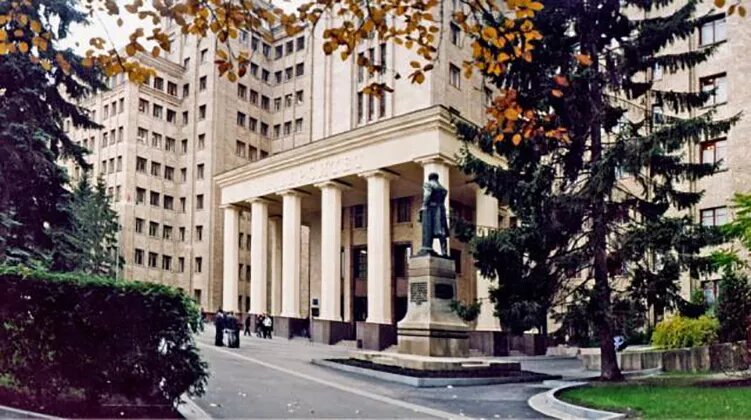
The Ukrainian Oral History Association (UOHA) and the Ukrainian Studies Department, Kharkiv V. N. Karazin National University with the support of the Heinrich Böll Foundation’s Office in Kiev and Center for Urban History of East Central Europe and Association of International Affairs (Czech Republic) and The Prairie Centre for the Study of Ukrainian Heritage (St. Thomas More College, University of Saskatchewan, Canada) invite you to take part in the scholarly conference “Oral History in the Age of Change: Social Contexts, Political Importance, Public Challenges”, (Kharkiv, 1–2 December 2016).
Since the inception of oral history as a separate branch of Social and Humanitarian Studies, researchers have focused mostly on the questions of public challenges and conditionalities, civic responsibility and initiative, and the political and academic importance of discrete oral history projects. These questions have gained prominence during times of public turmoil and conflicts, periods of (post)revolutionary upheavals, and at various stages marked by efforts aimed at overcoming and “working” the past. With renewed force they have actualized the problems of academic and sociopolitical responsibility faced by oral historians, their understanding of the social and political context of a completed project, and their adherence to research ethics and the development of professional practices of communication and interaction.
The current situation, characterized by a reinterpretation of the past, “battles” for memoirs as the capital of history politics, and the instrumentalization of memory as a legitimizing tool of certain political projects, has raised a number of questions. When does an event end and when does it become history? How can the oral history toolbox affect the preservation of memory of events that are still ongoing? Does the essence of oral history change when it is applied to the study of political challenges and present-day public reactions? From the perspective of these challenges and reactions, whose “voices” from the past are we trying to uncover, hear, record and analyze? Finally, in what way can professional oral history prevent the unpromising—from the standpoint of commemoration—increase in recorded recollections?
This year’s Ukrainian Oral History Association conference is devoted precisely to these questions: the sociopolitical role of oral history in the age of overcoming, working, and reinterpreting the past; ethical priorities; and the civic position and professional responsibility of oral history specialists.
This conference is being organized to celebrate the tenth anniversary of the Ukrainian Oral History Association. In the last decade the UOHA organized and co-organized nine international scholarly events (conferences, a methodological seminar, and an all-Ukrainian roundtable devoted to the theory and practice of oral history). During this period our association was involved in the publication of six collections of scholarly articles and one volume of oral histories.
The following topics will be discussed at the conference:
• Oral history in Ukraine: experience, dynamics, perspectives;
• Oral history of East Central Europe: the specific features of political challenges and social interaction;
• Reinterpretation of the past: political project and oral history initiative;
• Methodology of oral history research in the (post)revolutionary and military present: public challenges and academic possibilities;
• The “incomplete past” as a sociopolitical reality and scholarly problem: the experience of oral history research;
• Civic initiative and oral history projects: advantages and difficulties of collaboration;
• Oral history of traumatic events: research ethics and the professional training of researchers;
• Oral history in schools: the experience of pupils’ projects on local oral history.
During the conference a roundtable discussion will be held on the topic
“Going beyond the Audience: Oral History Projects in the Urban Space”
(co-organizer: the Center for Urban History of East Central Europe)
Working with oral histories entails not only the planning, collection, cataloguing, and preservation of interviews, but also the active management of materials: ensuring their visibility in the virtual and physical spaces and creating opportunities for utilizing them in research, education, exhibitions, and civic projects. This challenge relates directly to oral history and its public role: the crucial need to return collected materials to the community that supplied them in one form or another. Conversations with witnesses, participants, and creators of historical events can provide the basis for filling a web resource with content, organizing excursions, and staging theatrical productions. In this way, oral history can become an instrument of reconciliation with the past and/or its new reading.
During the roundtable we will be discussing the experience of carrying out a number of projects that were based on oral history interviews, and which took place in the urban space and communicated with the audience in a variety of forms. We will also be talking about how oral history interventions in the urban space seek their own format and public, and how the city itself is changing under their influence.
Applications must be submitted via e-mail
by 1 September 2016 to: oralhistory1.2.12.16@gmail.com
Conference speakers are requested to provide information about themselves and their topic, including a brief summary of their paper (up to 300 words).
The cost of travel expenses in Ukraine (bus, train, overnight train) and two nights’ lodging in a hotel in Kharkiv (including food) will be reimbursed.
Anticipated attendance is 30 people.
Conference papers will be presented in Ukrainian, Russian, and English.
Conference Organizing Committee:
Gelinada Grinchenko (Kharkiv)
Dmytro Chornyi (Kharkiv)
Oksana Kis (Lviv)
Olena Lukachuk (Lviv)
Natalia Otrishchenko (Lviv)